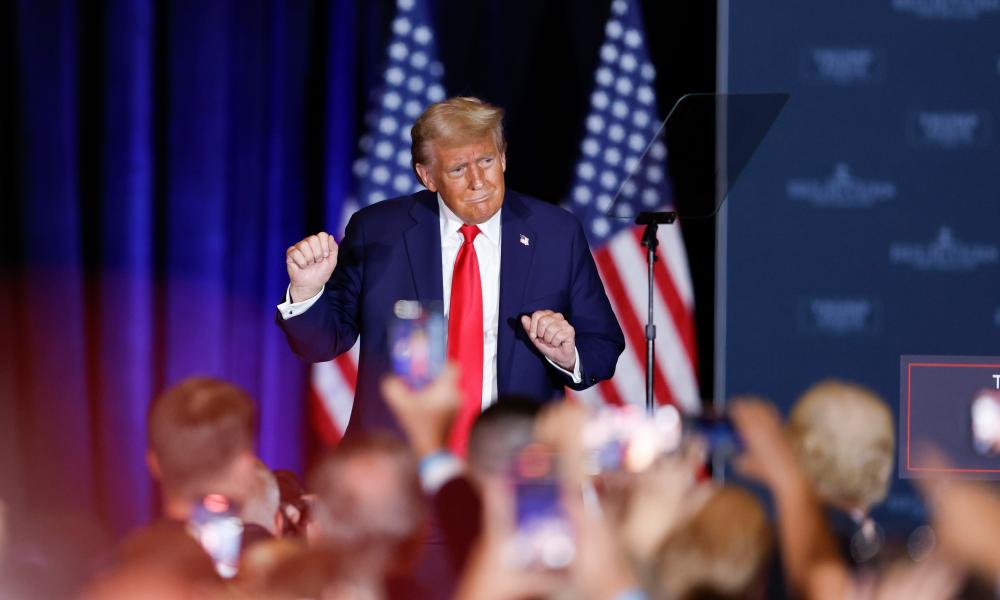Donald Trump recently addressed Christian voters at an event in North Carolina, positioning himself as a defender of religious freedoms against the perceived threats of a Kamala Harris administration. The meeting, dubbed an “11th-Hour Faith Leaders Meeting,” featured conservative pastors, including Guillermo Maldonado, who characterized the political climate as a battle of good versus evil, urging Christians to reclaim the nation through participation in the upcoming 2024 election. Maldonado’s rhetoric tapped into the belief that Christianity is under siege, a sentiment echoed by fellow speakers who rejected the idea of a secular society. Ben Carson, the campaign’s National Faith Chairman, reinforced this perspective by asserting that the election starkly represents a choice between a secular nation and one governed by Christian values.
In his speech, Trump shared his personal faith journey, particularly focusing on an assassination attempt he experienced at a rally, suggesting divine intervention in his survival. This narrative resonated with the Christian conservative audience, as he framed the experience as a sign that God had a purpose for him, primarily to strengthen America. Trump emphasized the importance of voter turnout among Christians, expressing concern that their participation in elections does not match their demographic representation. He made a significant promise to roll back the Johnson Amendment, which limits political endorsements by non-profits and religious organizations, vowing that such rights would be restored shortly after his potential re-election.
Trump also touted his administration’s controversial decision to move the U.S. embassy in Israel to Jerusalem, a move celebrated by many evangelical Christians who see it as critical to biblical prophecy concerning the end times. His support for Israel remains a strong tenet of his appeal to religious voters, reflecting a broader inclination among Christian nationalists who view American policies as part of a divine plan. In a more contentious part of his address, Trump condemned inclusion policies and gender-affirming care, pledging to dismantle what he termed the “toxic poison of gender ideology” and uphold traditional gender definitions as created by God.
Alongside Trump at the event, his son Eric highlighted what he perceives as an increasing war against religious liberties, attributing much of this erosion to the current and previous Democratic administrations. He claimed his father is the foremost champion of religious freedom, asserting that there is divine favor over Trump’s endeavors. Eric’s proclamations echoed sentiments found throughout evangelical circles, emphasizing a belief in a spiritual struggle that justifies the political activism of Christian voters.
Clay Clark, an entrepreneur associated with the event, was noted as a key organizer, reflective of a broader network of pro-Trump evangelical leaders who share similar ideological views, including proponents of the New Apostolic Reformation. This movement merges modern-day prophecy with an agenda for Christian dominion, blending elements of faith with a political mission that seeks to reshape American governance and culture. The ReAwaken America tour, co-founded by Clark, exemplifies the synergy between faith and political alignment that has characterized Trump’s support base.
Lastly, the event underscored the tensions surrounding the blending of faith and politics in contemporary America. As Trump’s campaign seeks to mobilize evangelical and charismatic Christians, the associations made with controversial figures could have mixed repercussions. While rallying support from a dedicated faith coalition, such alliances may alienate moderate voters who are apprehensive about the rhetoric and ideas associated with the larger movement. This complex interplay of faith, politics, and identity continues to shape the landscape as the 2024 election approaches, with Trump casting himself as the savior figure in an ongoing spiritual battle.

